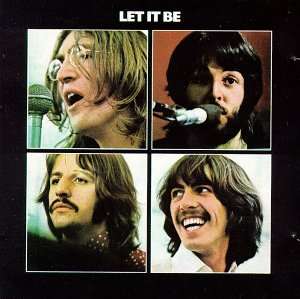
Conincidences Abound
Last night I was encoding my Beatles CDs onto my iPod. Yes, that's right I thought I really ought to have the entire Beatles song catalogue on my iPod because I do have it and rarely get around to listening to them anymore. May as well have them on standby when I'm searching for music on the road.
Today, I find this article.
Now Neil Aspinall, there's a name I haven't seen in a long time. I think I last saw him on the credits for 'A Hard Days Night' when I watched the DVD about a year ago.
IT IS the ultimate battle of the generations over an image of a half-eaten piece of fruit.
In one corner Sir Paul McCartney and Ringo Starr, the ultimate stars of vinyl who defined music in the 1960s. In the other, the creators of a small white box that has revolutionised the way we buy and listen to music.
This week the Apple Corps goes to the High Court seeking multimillion-pound damages against Apple Computer, the creators of the iPod, over their hugely successful iTunes Music Store.
Apple Corps, owned by the former Beatles and their heirs, still owns the licensing rights to Beatles’ products. It is claiming that the introduction of iTunes broke a $26 million settlement under which Apple Computer agreed to steer clear of the music business, for which the Beatles’ company retains the famous trademark. It is the latest clash in one of Britain’s longest-running corporate legal battles.
Any damages for this latest clash could amount to tens of millions of pounds because it concerns Apple Computer’s hugely successful iTunes Music Store and iPod digital music players.
The court will be treated to a demonstation of an iPod, but it is unlikely to play a Beatles song, as they have not been licensed for download and it would therefore be illegal.
The Beatles first used a logo of a Granny Smith in 1968 when they founded the Apple Corps to distribute their records and those of other artists they signed to the Apple record label. The records had a ripe apple on one side and a neatly sliced half on the reverse.
The Apple Records subsidiary is still active as the licensing agent for Beatles products.
Steve Jobs, chief executive of Apple Computer, founded his company in 1976 with a logo of a rainbow-coloured apple with a bite taken out of it. Apple Corps sued him five years later, accepting an $80,000 settlement and a promise that the computer company would stay out of the music business.
The companies clashed again in 1989 after Apple Computer introduced a music-making program. The computer company settled in 1991, for $26 million. Apple Corps was awarded rights to the name on “creative works whose principal content is music” while Apple Computer was allowed “goods and services . . . used to reproduce, run, play or otherwise deliver such content”.
Critically, however, the agreement prevented Apple Computer from distributing content on physical media. This was designed to cover CDs and tapes, but it is unclear whether it included later inventions such as digital music files or devices used to play them.
Apple Computer will argue that its music service, which has sold more than a billion songs since 2002, is merely data transmission.
The case is scheduled to begin on Wednesday at the High Court before Mr Justice Mann, a self-professed fan of music and computers. He is no stranger to the iPod, having inquired of both sides some time ago if he should disqualify himself from hearing the case because he owned one.
The owners of Apple Corps — Sir Paul, Ringo Starr, Yoko Ono and Olivia Harrison — will not attend the hearing, but witnesses will include Neil Aspinall, the company’s managing director and the former Beatles road manager; and Eddy Cue, head of internet services at Apple Computer.


No comments:
Post a Comment